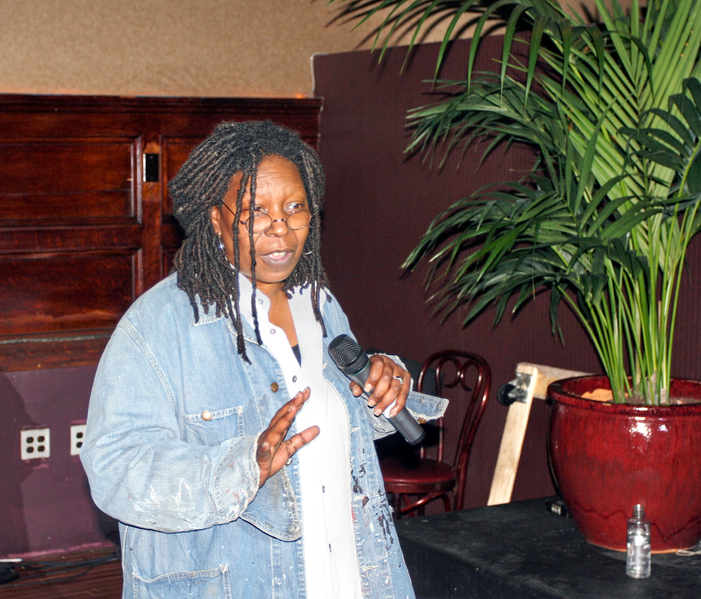The generational divide on work ethic and the attainability of the American dream has taken center stage following Whoopi Goldberg's recent comments on "The View." The show's episode, which aired on a Wednesday, saw the EGOT-winning actress and moderator engaging in a heated discussion with co-hosts about why millennials are delaying or opting out of parenthood, which spiraled into a broader debate on work ethic across generations.
Goldberg's assertions that millennials and Gen Z lack the drive to be "good citizens" has ignited a backlash on social media platforms, with numerous users voicing their disagreement with the actress's perspective. With a direct quote that encapsulates the contentious point, Goldberg said, "I'm sorry, if you only want to work four hours, it's going to be harder for you to get a house." This stance echoes the sentiment of celebrities like Kim Kardashian, who faced similar criticism after her comments in 2022 urging young women to "get your f---ing ass up and work."
While the show typically garners attention for its candid discussions, Goldberg's suggestion that the younger generation's struggles with financial stability are a result of an inadequate work ethic has struck a particularly resonant chord. The debate is rooted in the differing challenges faced by generations, as millennials - born between 1981 and 1996 - and Gen Z - born between 1997 and 2012 - grapple with economic hurdles such as inflation, the housing crisis, and the aftermath of financial recessions.
Alyssa Farah Griffin, a millennial and political strategist, sided with the data, emphasizing her generation's hardships: "We've been in war basically my entire generation," and underlined the daunting reality of earning enough to provide for a family. Studies, like one from Redfin, show that a "typical U.S. home" requires an income of $115,000, far surpassing the average American income. This data speaks to the concerns of younger generations who are increasingly finding themselves worse off financially than their parents were.
Despite this, Goldberg, a representative of the Baby Boomer generation, maintains a different view, suggesting that the challenges are not unique to the younger cohorts and that overcoming them is a matter of personal effort and civic duty. The ensuing online conversation has featured a mix of rebukes and defenses of Goldberg's position, highlighting a complex and emotionally charged issue.
The social media furore extended beyond mere commentary, with users like John Elrod III lamenting Goldberg's remarks as "asinine," and others calling into question her ability to relate to the financial struggles of the average person.
The discourse also reflects on larger economic trends, with a Redfield and Wilton Strategies survey indicating that more than half of young adults would consider parenthood if the cost was lower, and the ongoing decline in U.S. birth rates partly due to financial constraints exacerbated by the pandemic.
Goldberg's comments have served as a catalyst for a broader discussion on the societal expectations placed upon millennials and Gen Z, the realities of the current economic landscape, and the enduring quest for the American Dream. While some see her perspective as out of touch, others suggest it brings a tough-love approach to the ongoing generational dialogue on work, wealth, and wellbeing in America.






